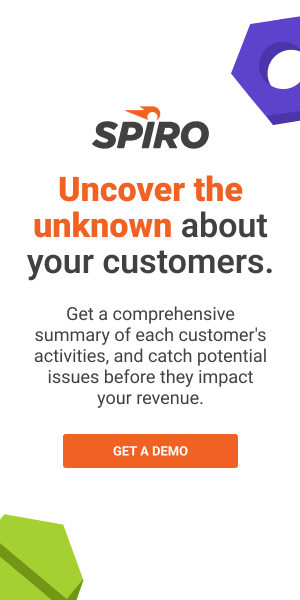When To Use the Negative Close
You know how they say a lot of great inventions were created by accident? Like the discovery of Penicillin and the awesomeness we now know as potato chips? Seriously – if you don’t believe me, look it up.
That aside, I discovered one of my favorite sales techniques in pretty much the same way.
(My other favorite sales technique is using Spiro’s sales automation CRM)
My first sales job was selling technical education classes. Not the most thrilling work, but it was my entry into sales. We’ve all got to start somewhere. I would go through a list of prospects, call them up and see if they were interested in learning more about developing “open source solutions.”
My pitch was focused on speeding product development for their company, thereby increasing career value for the attendee. Like many young salespeople, I was often very chipper about the benefits of these classes. I was supposed to make them sound desirable, right?
One time, I got a fairly cranky developer on the phone. He wasn’t very excited about our offerings even though I knew (of course) that he would get immense benefits from them. He had literally zero interest.
At that point, something slipped out of my mouth before I could stop it.
“You know what? I don’t think you’re right for our class.” I couldn’t believe what I just said, but it got his attention! Amazingly, the topic of conversation switched focus on to why he might actually be right for the class. And thus the discovery that sometimes the negative will make the close. Read on to find out how I do it.
Getting to “No”
There are a lot of sales gurus out there who are all about enthusiastic deliveries and getting prospects to positively reinforce your message. I totally agree with this thought, but when used properly, the negative close can be equally as effective.
Just to be clear, I’m using the term ‘negative close’ as the sales technique where a salesperson basically challenges the prospect to reject an offering. Examples include questions like “this project will never get funded, right?” or “it’s unlikely you can get approval for this, right?” The idea is to get your prospect to disagree with you. But even if they don’t, there is great benefit to this approach.
Part of the challenge in sales is getting your customers to be honest with you about their reservations about your product, or their timing and budget for a purchase. It’s not like they are always trying to hide something from you. Often they themselves don’t even know the answer.
Giving a prospect an easy way to say “no” can help you qualify a deal quicker and move onto other more lucrative opportunities. You’ll find out what your potential client is really looking for and if he/she has the budget to back his/her desires. It’s a time saver for all involved.
And What if They Don’t Agree?
If you say something like, “You guys are never going to invest in XYZ,” and they say, “Oh, yes we will…” I believe that is twice as reinforcing because they’re putting more mental energy into it. You are asking them to seriously consider your product and their need for it.
Let’s face it, reverse psychology totally works in sales. We can tell people they don’t want or need what we have and then they’ll talk themselves into the reasons they do! People are better at selling themselves on something than any salesperson ever could be.
What Not to Do
Here are some things you need to keep in mind when you try to employ the negative close as a means of selling. In fact, I’ve determined that there are three things you should be hyper-cognizant of.
- Your tone needs to be right. You can’t say sarcastic and harsh things like, “You guys are too dumb to understand our product,” and hope that the customer says, “No, we’re really smart and we get it!” No one likes condescension.
- Don’t sound like a sales guy and say, “Your company isn’t looking to increase revenue, right?” In truth, those statements are just ridiculous and they’ll only irritate your prospects.
- Don’t over use it! All good things are best utilized in moderation.
The Closer
You really can use negative responses in your favor. Any answer you get means that you’re at least making your potential client think. You can work with a no just as well as with a yes and in fact, a no might help you move onto the next big deal!
Photo courtesy of Flickr user Christian Guthier.

